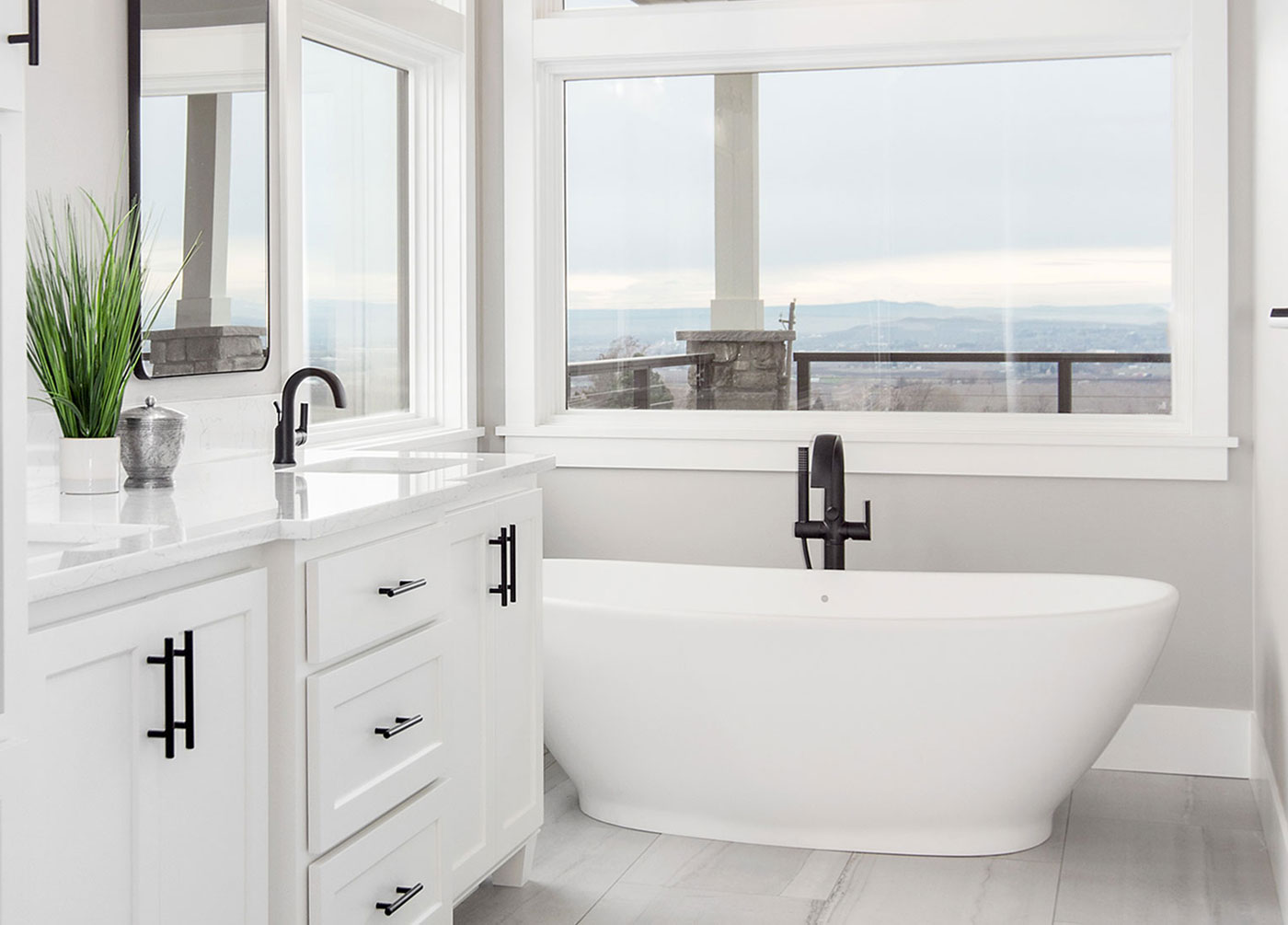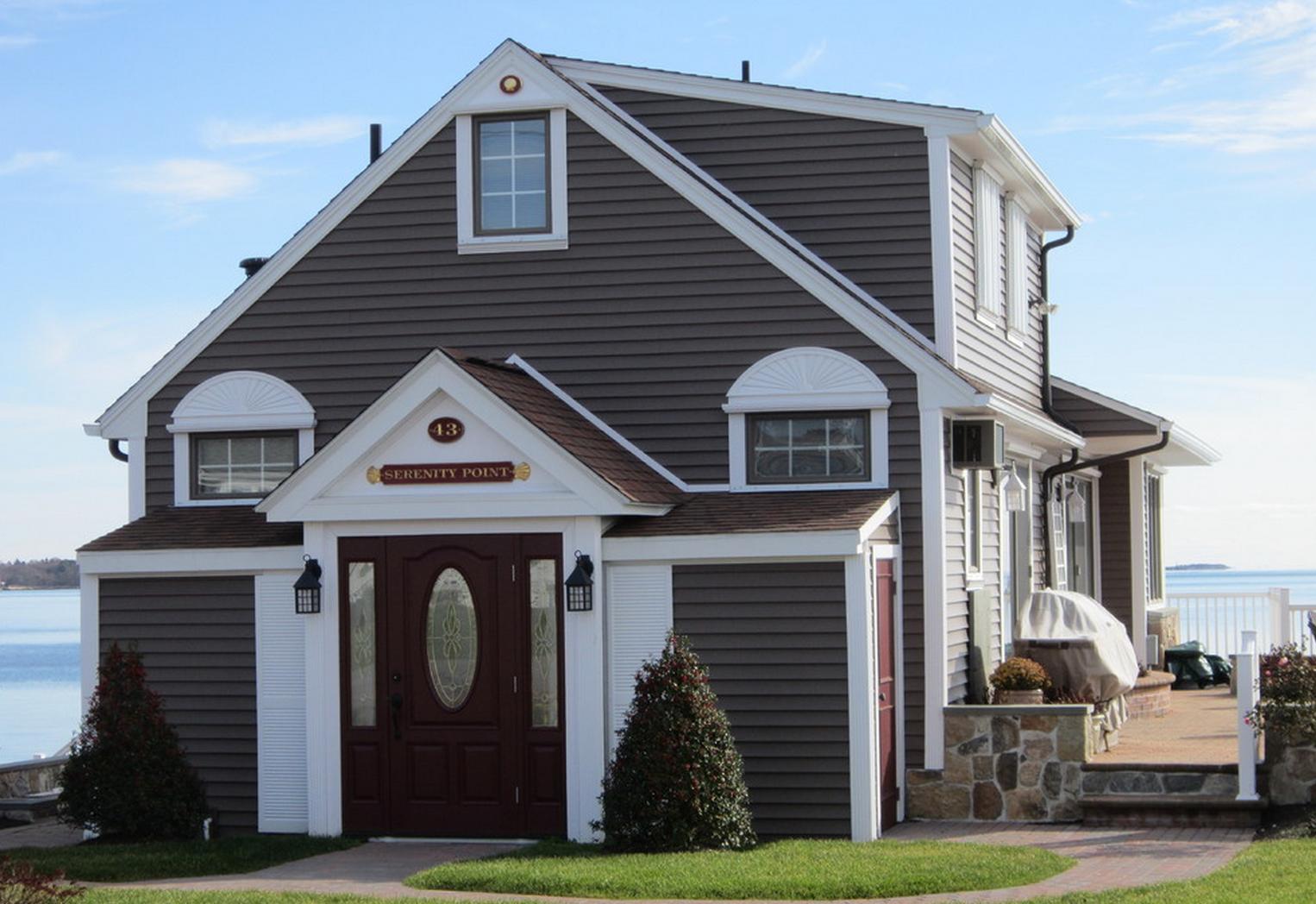
There are many options for painting vinyl siding in your home. You have two options: hire a professional or do it yourself. The pros are more expensive, but they will provide better coverage. These are the steps you need to take before you can start if it is something you have decided to do yourself. This will ensure that your results are the best.
The first step is to properly prepare your vinyl siding. You will need to clean the vinyl siding with hot water and a scrub brush. A plastic tarp can be used to cover areas not covered with paint. It will keep paint splatters away from your new color. This will save you the hassle of having to touch up later.

The second step is to choose a good quality paint. There are many paint brands to choose from, such as Benjamin Moore. This paint manufacturer makes a wide range of high-quality paints for different surfaces. You can also find high quality bonding primers like Behr Exterior Paint + Primer for vinyl siding.
Preparation is the most important aspect of any painting job. Preparation means ensuring your surfaces are clean, free of dust and dirt. You must be able to get rid of all dirt and mildew that has built up on your surface. Oil-based paint can be cleaned with a soft toothbrush or mineral spirits. You can skip this step if your siding has just been installed.
The best vinyl paint will not only stick to vinyl siding, but also protect it against pests and harmful UV rays. The paint should cover all areas of the vinyl siding, including the corners and edges. It should also have a matte finish. This will make the surface more appealing, since it will protect the underlayer from moisture and insects.
The most practical and effective paint for vinyl is the best. You should have experience with painting other surfaces in your house so you can understand the best technique. It's a good idea for anyone who has never painted vinyl to take their advice. This will ensure that you don't make costly mistakes in the future.

The most efficient way to apply the best paint for vinyl is by using a paint sprayer. This is especially beneficial if your vinyl siding is large, as it makes it easier to cover a lot of area at once. A paint roller is an option for siding that is smaller. You will still want to cover all your vinyl's edges and corners with the best paint for vinyl. The best paint for vinyl will be the type that is sprayed on in an even coat. You can do this with a paint sprayer, a paintbrush, or a paint applicator.
FAQ
Do I need permits to renovate my house?
Yes. Before you start any home improvements project, permits are necessary. In most cases, you will need both a plumbing and building permit. You might also require a zoning permission depending on which type of construction is being undertaken.
What should I consider when buying a new home?
You need to ensure you have enough funds available to cover closing costs before you buy a home. Refinancing your loan is an option if cash is tight.
What should I fix first when renovating a house?
The first step in fixing up a home is to get rid of any clutter. Next, remove moldy spots, replace damaged walls, fix leaky pipes, and paint the whole interior. You will need to clean up the exterior and paint.
How Much Does It Cost to Renovate A House
Cost of renovations depends on the material used, how large the job is and how complex it is. Wood, for example, requires additional tools such as saws and drills. Steel, however is not so dependent. The price of renovations will depend on whether you need your contractor to do everything or if the work is done by you.
The average cost for home improvements projects is $1,000 to $10,000. The average cost of home improvement projects would be between $5,000 and $25,000. You could also spend as much as $100,000 if you do it all yourself.
There are many factors that influence the final cost of renovations. You should consider the material used, such as brick vs concrete. brick vs concrete), the size of the project, the number of workers involved, the length of the project, etc. These are important considerations to remember when estimating total renovation cost.
Statistics
- It is advisable, however, to have a contingency of 10–20 per cent to allow for the unexpected expenses that can arise when renovating older homes. (realhomes.com)
- They'll usually lend up to 90% of your home's "as-completed" value, but no more than $424,100 in most locales or $636,150 in high-cost areas. (kiplinger.com)
- ‘The potential added value of a loft conversion, which could create an extra bedroom and ensuite, could be as much as 20 per cent and 15 per cent for a garage conversion.' (realhomes.com)
- According to the National Association of the Remodeling Industry's 2019 remodeling impact report , realtors estimate that homeowners can recover 59% of the cost of a complete kitchen renovation if they sell their home. (bhg.com)
- The average fixed rate for a home-equity loan was recently 5.27%, and the average variable rate for a HELOC was 5.49%, according to Bankrate.com. (kiplinger.com)
External Links
How To
5 Things You MUST Know Before Starting Your Home Renovation
-
Do you really want this? If you're planning on embarking on major home improvement projects like renovating your kitchen, bathroom, or building a brand new house, it's certain that you'll need to have some assistance. If you aren't confident enough to take on such a daunting task, you may want to reconsider. It could take up a lot of your time and money, and you won't get any real benefits from it. Instead, why not hire someone who knows what they're doing to help out? These people will save you time, stress, and provide a beautiful place to live in.
-
How much should I budget? This is a common question, but it can make renovations more expensive. This is because most of the cost will be recouped at the end. You should stick to your budget, even if it's a tight one. You could wind up spending a lot and not getting any return.
-
Should I use DIY or hire professionals? - There is no right or incorrect answer. However, we recommend hiring professional tradespeople when you can afford them. Their advice will be invaluable in helping you decide how to proceed. For example, they'll be able install the plumbing correctly, ensure that everything is done safely, and provide you with a warranty when they finish their work. DIY projects often involve a lot trial and error. You'll learn a lot the hard way. Plus, you'll have to deal with all sorts of problems that arise during the process.
-
Can I afford it - Don’t underestimate the cost associated with a home renovation. Even if the project seems manageable, it could prove costly and you will need to borrow money. When you want to sell your existing property quickly after the renovations are complete, you will need to account for the price of selling it.
-
Which place should I start? - When it comes to choosing where to start, there's no right or wrong place. But we suggest you choose something that you enjoy working on. That way, you'll be motivated to keep going, and you'll be less likely to procrastinate. Also, avoid places that are difficult to maintain. If you have to deal with dirt and dust, don't try to redecorate the living room.